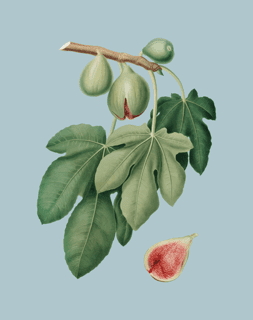Table of Contents
I am not a preacher or theologian—just someone sharing my personal experiences and reflections on Scripture. I encourage you to seek wisdom from your pastor, clergy, or a trusted spiritual leader for spiritual guidance.

Bearing Fruit: Meet For Repentance
Bearing Fruit is part two of the repentance post. If you’re unfamiliar with the concept, bearing fruit is about showing evidence of your transformation—proof of the change God has made in your life (Matthew 7:16-20).
John put it perfectly when he spoke to the Pharisees and Sadducees, urging them to “bring forth therefore fruits meet for repentance” (Matthew 3:8, KJV).
The Pharisees and Sadducees were people who knew Scripture, but somewhere along the way, they lost their love for God.
They followed religious laws, but their hearts had drifted away from Him (Matthew 15:8).
It’s similar to how we can go through the motions of ministry—checking the boxes, performing the duties—yet fail to realize that sacrifices are empty if there’s no true desire for God behind them (1 Samuel 15:22).
An Appearance Of Fruit
If we go back to the fig tree in the vineyard, we see that when the owner came seeking fruit and found none, he instructed the vinedresser to cut it down.
But the vinedresser interceded on behalf of the tree, pleading for another year of care and cultivation (Luke 13:6-9).
If only that tree knew how little time it had left—would it have finally started to sprout?
The same could be said about the barren fig tree that Jesus cursed (Mark 11:12-14). The key similarity between both trees is this: the expectation of fruit.
The very act of seeking fruit implies there should be evidence of it.
Before cursing the fig tree, Jesus approached it, drawn by its leaves, which signified that fruit should have been present.
But upon closer inspection, He found nothing. It was all appearance—no substance.
Likewise, the fig tree in the vineyard was not only fruitless but also taking up valuable space, drawing nourishment that could have gone to trees actually bearing fruit.
The owner questioned, “Why does it use up the ground?” (Luke 13:7). Why let it remain if it serves no purpose?
This is a sobering reflection on our own lives. Are we truly bearing fruit, or are we merely existing, taking up space while giving the illusion of growth?
It echoes Paul’s warning in 2 Timothy 3:5—having “a form of godliness but denying its power.”
Outward appearances mean nothing if there is no real transformation. Thinking we are true believers is not enough—our lives must produce the evidence of repentance.
Bring Forth Fruit Meet For Repentance
Going back to John in Matthew 3, he tells the Pharisees and Sadducees, “Bring forth fruit meet for repentance” (Matthew 3:8, KJV).
He emphasizes that true repentance must be accompanied by visible fruit.
At that time, they likely thought, We are children of Abraham; we are connected to the promise. But John quickly reminds them that “God is able of these stones to raise up children unto Abraham” (Matthew 3:9, KJV).
Their heritage alone was not enough—God desired a genuine change of heart, not just lineage.
The Apostle Paul further elaborates on this in Romans 11:17 (NLT), where he writes that some branches from Abraham’s tree had been broken off.
In John 15, Jesus explains that He is the true vine, and we are the branches. “Every branch in Me that beareth not fruit, He taketh away; and every branch that beareth fruit, He purgeth it, that it may bring forth more fruit” (John 15:2, KJV).
Those who remain in Him are pruned, while those who do not bear fruit are removed and cast into the fire (John 15:6).
James said it best: “Faith without works is dead” (James 2:26, KJV). Paul also teaches that our deeds should reflect our faith (Titus 3:8).
Without faith, it is impossible to please God (Hebrews 11:6). Bearing fruit means living a life that visibly demonstrates the transformation God has made in us. It shows that He has indeed called us out of the world and separated us for His purposes.
Our Witness
Now, I’ve heard many argue that we don’t have to do anything in terms of works for our salvation.
However, bearing fruit is not about earning salvation. Salvation is a free gift given to us through Christ’s death on the Cross. Ephesians 2:8-9 (NLT) reminds us: “God saved you by his grace when you believed.
And you can’t take credit for this; it is a gift from God. Salvation is not a reward for the good things we have done, so none of us can boast about it.”
I like to think of salvation as a wedding banquet invitation, just like in Luke 14:16-24. The host invited many, but when the time came, they made excuses for not attending.
So, the host extended the invitation to others who would gladly accept.
But there’s also the story in Matthew 22:1-14, where the king invites guests to the banquet. One guest shows up without the proper wedding garment.
Though the invitation was extended to him, his attire—or lack of evidence of transformation—proved he wasn’t truly prepared for the feast. The king notices this and questions the guest, ultimately throwing him out.
Though this individual received the invitation to the wedding, there was no outward sign of preparation. He didn’t show any fruit of the change that was expected from the invitation.
Salvation is by faith alone (Ephesians 2:8-9), but once we accept that invitation, we must show up with the proper response. Bearing fruit is that proof of transformation—a visible change in how we live.
As James 2:17 tells us, “faith by itself, if it is not accompanied by action, is dead.” Galatians 5:22-23 speaks of the fruit of the Spirit—the evidence of a transformed life.
Without evidence, without the “wedding garments” of transformation, we risk showing that we haven’t truly embraced the invitation or experienced the change that should come with it.
Our lives should reflect that we have been changed for the occasion—just as an invited guest should be ready and dressed appropriately for the wedding feast.
You hear often that people don’t care how someone see’s them or that one cannot judge them because God knows their hearts.
But it is important for us to care who we represent. We should care about out witness. Whose glory we actually are putting to shame when we continue to sin. Paul said it best that should we continue to sin since we have grace God for bid.
Discipleship
This ties back to discipleship. After Jesus speaks about the banquet in Luke 14, He continues to address those who started following Him.
He warns them that following Him is not without cost. Jesus encourages them to carefully count the cost beforehand because true discipleship is not a one-time decision but an ongoing commitment.
He tells them that once the foundation is laid, if they do not intend to finish the work, others will mock them.
They’ll say, “This person started building but couldn’t finish.” This isn’t about the work God started; it’s about our willingness to continue building with Him.
As Galatians 5:7 states, “You were running well. Who hindered you from obeying the truth?” We hinder ourselves when we believe that following Jesus doesn’t require us to bear fruit.
We may think that grace is a free pass, but grace empowers us to live in a way that honors God and produces lasting fruit.
In Philippians 1:6, we’re reminded, “Being confident of this, that he who began a good work in you will carry it on to completion until the day of Christ Jesus.”
This promise is secure, but it requires us to remain steadfast. The foundation of faith has been laid, but we must stay connected to the true vine, Jesus, to bear fruit that reflects His work in us (John 15:4-5).
Let’s reflect on our own spiritual journey. Are we building on the foundation Christ laid in our lives, or have we let distractions and discontentment hinder our growth?
Are we abiding in Christ, allowing Him to prune and shape us so that we bear lasting fruit?
Key Points: The Cost of Discipleship and Bearing Fruit
1. Counting the Cost of Following Jesus
• Jesus warns that following Him requires careful consideration (Luke 14:28-33).
• Discipleship isn’t just about starting but about enduring until the end.
• If we start without commitment, others may mock our unfinished faith journey.
2. Bearing Fruit as Evidence of Discipleship
• Faith without works is dead (James 2:17); true faith produces fruit.
• Jesus says we must abide in Him to bear fruit (John 15:4-5).
• Just as a tree is known by its fruit, a believer is recognized by their life and actions (Matthew 7:16-20).
3. Hindrances to Spiritual Growth
• Galatians 5:7 asks, “You were running well. Who hindered you?”
• We hinder ourselves when we neglect spiritual growth or become complacent.
• Discontentment, distractions, and a lack of nourishment in the Word can stunt our fruitfulness.
4. God’s Faithfulness to Complete the Work
• Philippians 1:6 reassures us that God will complete the good work He started in us.
• However, we must remain connected to the vine (Jesus) for the process to continue.
• Salvation is the foundation, but our response determines whether we continue building.
5. Personal Reflection and Call to Action
• Are we staying connected to Christ, allowing Him to prune and shape us?
• Are we actively growing in faith, or are we stagnant in our walk with God?
• Let’s ensure that our faith journey is not just about believing but about living out our faith through visible fruit.
